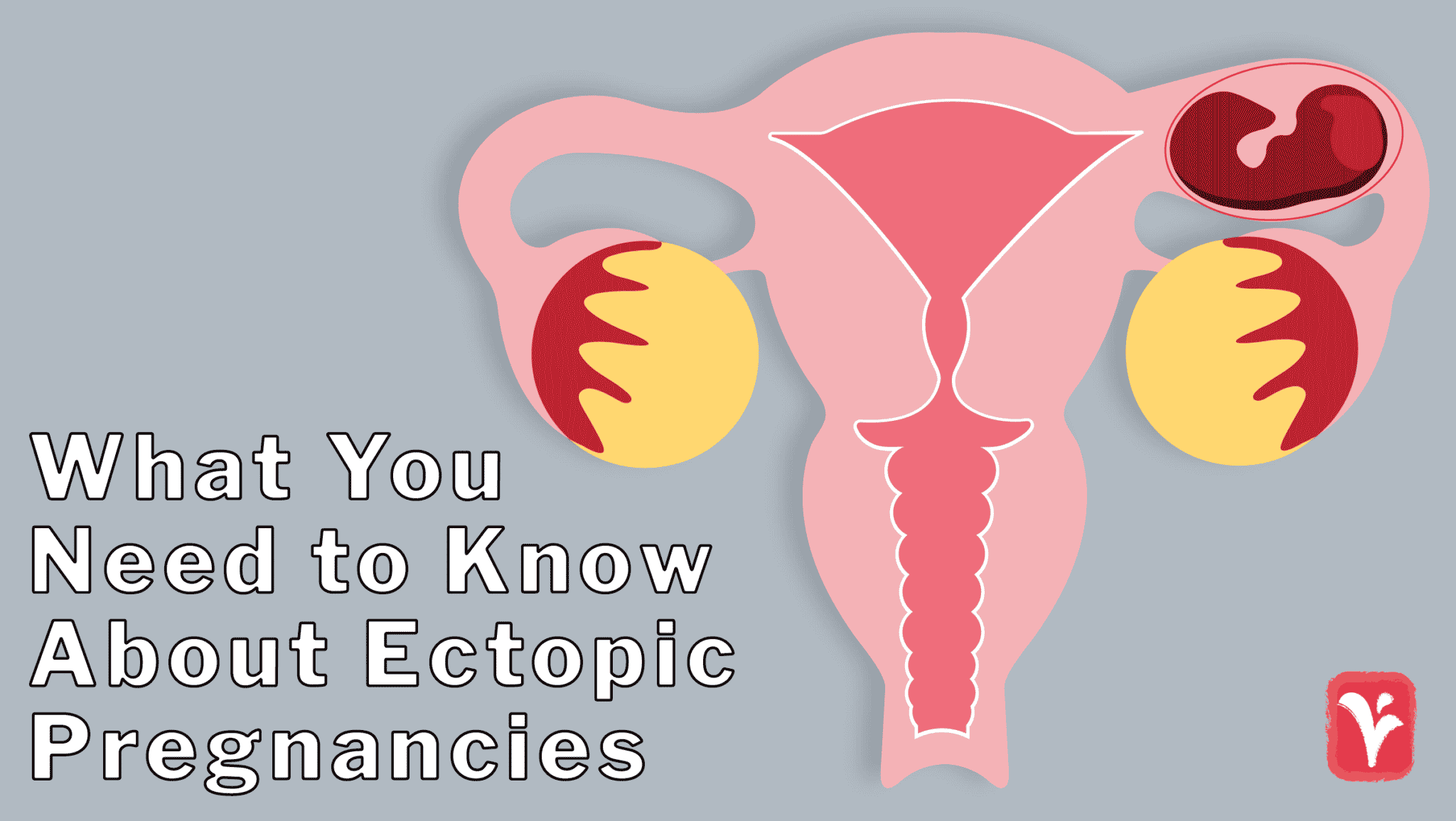A fertilized egg is required for a pregnancy. In the case of an ectopic pregnancy, a fertilized egg grows outside of the uterus, the typical site for a pregnancy to develop. The majority, 90%, of ectopic pregnancies occur in a fallopian tube, though they can also occur in the ovary or abdomen.
Ectopic pregnancies can be life-threatening to the pregnant person when left untreated. Therefore, catching ectopic pregnancies early is paramount for receiving timely care.
Ectopic pregnancies are rare. In America, 2% of pregnancies are ectopic, according to March of Dimes.
As part of Austin Women’s Health Center’s Early Pregnancy Assessment Clinic, we offer patients an early screening for ectopic pregnancy. Our staff will run assessments, screen for ectopic pregnancy, and help you understand recommended treatments.
Risk Factors for Ectopic Pregnancy
Ectopic pregnancies can happen to anyone; unfortunately, there is no way to prevent them. The most significant risk factor is a history of prior ectopic pregnancies. Other risk factors include smoking, certain STIs, inflammation caused by endometriosis or pelvic inflammatory disease, previous surgery on the fallopian tubes, fertility treatments, age, and certain types of birth control.
Although there is a very low risk, if you happen to get pregnant while using an IUD as contraception, your chance of ectopic pregnancy is higher. According to the American College of Obstetricians and Gynecologists (ACOG), half of the people with ectopic pregnancies have no known risk factors.
An ectopic pregnancy is not your fault. While receiving this diagnosis can be startling, treatment and support are available.
Symptoms of Ectopic Pregnancy
Some people do not notice symptoms at first. Symptoms often occur between six and eight weeks after a menstrual cycle. Early warning signs of an ectopic pregnancy include abdominal pain, missed period, and vaginal bleeding. If blood leaks from the fallopian tube, symptoms can include the urge to have a bowel movement and shoulder pain.
In the case of internal bleeding, extreme lightheadedness or fainting may occur. If you should encounter these symptoms, it’s best to seek emergency medical care.
Diagnosing an Ectopic Pregnancy
An ectopic pregnancy can be difficult to diagnose based on symptoms alone, so more testing will be required.
Suppose your provider suspects you might have an ectopic pregnancy. In that case, they will offer a pelvic exam, an ultrasound to see where the pregnancy is growing, or a blood test to check for a hormone called hCG.
At AWHC, we have identified pregnancies where the location was suspicious for ectopic location through ultrasound and/or HCG quantitative testing. If we suspect an ectopic pregnancy we will refer you to the ER or Radiologist.
Because we see patients in early pregnancy, there is a greater chance to identify ectopic cases, which can expedite treatment. While we do not offer treatment for ectopic pregnancy, we advise patients immediately seek further evaluation and treatment at a nearby ER. It’s essential not to delay care.
It’s common not to be able to see a pregnancy in the uterus at the first ultrasound. We provide patients with information about ectopic pregnancy and what to do in the event they experience symptoms. Patients are asked to return in 1-2 weeks for for another ultrasound to confirm location and rule out early miscarriage or ectopic pregnancy.
Treatment Options
Sometimes, an ectopic pregnancy may end through miscarriage. More often, medical intervention is required. While some may mistakenly conflate ectopic pregnancy treatment and abortion—these treatments are not the same. Ectopic pregnancy treatment ends an unviable and unsafe pregnancy located outside the uterus by laparoscopy or Methotrexate. Abortion ends a pregnancy in the uterus, commonly through a combination of medications, Mifepristone, and Misoprostol, or surgical abortion.
Because the risk of an ectopic pregnancy is so severe, watching and waiting is not recommended. Treatment options for ectopic pregnancy include surgery, medication, or a combination of both.
Ectopic pregnancy transplantation via surgery does not exist, though it’s a common question that people with ectopic pregnancies may ask. Ectopic pregnancy also cannot gravitate to the uterus naturally. Unfortunately, ectopic pregnancies cannot continue. If the pregnancy continues, it can cause the fallopian tube to rupture and cause internal bleeding. Internal bleeding can be life-threatening, so treating an ectopic pregnancy is critical.
Medicine
The most common medicine used to treat ectopic pregnancy is methotrexate. If the pregnancy has not ruptured a fallopian tube, methotrexate may be an option. However, certain health conditions or breastfeeding might prevent providers from prescribing it. A provider will typically prescribe methotrexate for ectopic pregnancies diagnosed early, within six weeks of the pregnancy. Methotrexate is often given via injection.
Surgery
Emergency surgery is needed if a pregnancy has progressed or the fallopian tube has ruptured. However, according to ACOG, sometimes, even if a tube has not ruptured, surgery is still needed. In this case, the pregnancy can either be removed from the tube or the fallopian tube will be removed entirely. Surgery is performed by laparoscopy in a hospital setting.
Surgery and Medicine
Sometimes, a provider will recommend a combination of surgery with methotrexate, which a patient will typically take after surgery to remove any last fetal cells.
After Receiving Treatment for an Ectopic Pregnancy
After you receive methotrexate or surgery, follow your provider’s instructions for care.
A diagnosis of ectopic pregnancy can be upsetting and cause a range of emotions. Rarely are ectopic pregnancies expected. However, practicing self-care and receiving emotional support from loved ones or outside help, such as a counselor, can be helpful. There are also support groups for those experiencing similar circumstances.
Catching an ectopic pregnancy early is a way to help fertility for future pregnancies. Over half of pregnant people who have experienced ectopic pregnancies will have healthy pregnancies in the future.
Knowing the symptoms, receiving timely care, early diagnosis, and treatment can help. At AWHC, you’ll receive compassionate care each step of the way.
